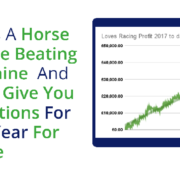The desire for new experiences: how to diversify your life with online entertainment
Today, the Internet is actively replacing all other areas of interest of modern life. On the Internet people get acquainted with each other, communicate, work, even make friends and spend their leisure time together.
One of the popular categories of online entertainment today is the casino. In the UK there is a unique opportunity to play and bet in legal, registered casinos.
In this country gambling is strictly controlled at the legislative level. However, it is not prohibited, which means that residents of this country can openly register in virtual casinos and play for money.
The site casinonodepositbonus.org.uk has collected a list of licensed casinos in a variety of categories. Here you can find no deposit casinos, casinos with the most favorable bonus programs, different payment methods, etc.
To really enjoy the gaming process and minimize the risk of losing your own money, you should give preference to no deposit casinos.
What is a no deposit casino
This is a gaming platform that offers a no deposit bonus as a prize or gift. It represents a part of the bonus program. The bonus can be used without making a deposit. With such a bonus, you can even win a jackpot in certain circumstances.
Such a gift can be included in the welcome package or can be credited to the user for high activity, on the occasion of a holiday. Receipt of a no-deposit bonus is reflected in the player’s personal cabinet in the “bonuses or gifts” section.
It should be understood that you can count on such a gift only if the user has registered and verified on the site. This is a mandatory requirement.
In addition to the no deposit, there are a number of other reasons why residents of the UK and other countries choose this option.
Online casino as a leisure activity
There are several reasons why gambling is becoming increasingly popular as a form of leisure.
- A sea of positivity and new, bright emotions.
Most UK casinos offer players a wide variety of games from reliable, global providers. There are modern, very lively graphics and high-quality sound accompaniments. All this allows players to plunge into the atmosphere of an amazing virtual reality. During the game, the participant feels himself as a hero of one of the slots or just enjoys the thrills and adrenaline.
- Game with live dealers.
Most casinos have a section of games with live dealers. Without leaving the house, via the internet they can play with real, live dealers. High resolution and round the clock casinos allow you to enjoy the game at any time of day or night.
- A huge number of games to suit every taste.
Despite the thousands of games in the catalog the most popular games remain slots and card games. For those who have no experience we offer to familiarize themselves with the terms and rules and features of the card game blackjack https://www.casinonewsdaily.com/blackjack-guide/.
- Game of the day.
Almost any virtual casino offers a huge selection of games. Fans of gambling will be able to find what they like here. You can change games and try your luck on a regular basis. Many gambling platforms offer several thousand games. In most cases, the most extensive category is slots. They are presented in a modern version with a quality soundtrack.
- Responsible play.
This is a very important option that is present in all casinos. Unfortunately, statistics indicate that the number of ludomania takes place and the number of addicted people is constantly growing. Licensed gambling platforms that offer quality play are trying to find ways to solve this problem. These ways include the possibility of self-exclusion.
In order for virtual reality and online casinos to really bring only joy and pleasure, it is necessary to prevent negative consequences. To such and includes ludomania. Many casinos offer players before registration to pass a special test that will determine the level of dependence. If the percentage is high, it is worth setting restrictions.
This can be a limit on the time spent on the site, or on the amount of bets made in the casino. There are also special portals that provide help and inform people about when to sound the alarm and how to circumvent the danger https://gam-anon.org/gam-anon-can-help/about-compulsive-gambling.
- Comfort.
Undoubtedly, playing in an online casino is much more comfortable and interesting than in a real one. The user can enjoy the game without leaving home, accompanying the process with their favorite dishes or drinks. A familiar, comfortable environment and the absence of strangers adds comfort and positive emotions. You can fully concentrate on the game and your feelings.
- Bonuses and gifts for players.
This is a separate category and the so-called “carrot” from the casino, which gives even more positive emotions and joy from the gaming process itself. In the fight for new players, gambling platforms compete to form a more attractive package of gifts and incentives. This further arouses the interest of gambling enthusiasts. There is an incentive and desire to test more categories of games, use all the gifts received and maximize the benefits.
At the same time, in order not to spoil the fun and not to mar the great mood, you should not miss important details. All bonuses and gifts that give players casino, it is necessary to wager a certain amount. Wagering conditions are very important and are of key importance. Before you activate the received gift, it is worth paying attention to the wagering requirements, the maximum wagering bet, as well as the maximum amount of winnings. These indicators allow you to calculate whether it is profitable to use gifts from the casino, or it is only a way to attract new players.
Of particular note is the No-Deposit Bonuses category. This so-called no-deposit bonus, which allows players not to make real bets, but to use the gift without financial costs.
Not all gaming platforms provide such a bonus. However, it is this bonus is the most attractive for fans of gambling. It can be included not only in the welcome package, but also simply accrue to active players.
Many gaming platforms offer different types of no deposit bonuses, as well as different conditions for their use. The most widely used in online casinos in Britain are freespins.
These are free spins that can be spent on spinning your favorite slots. Depending on the promotion, a player can be awarded from 5 to 500 freespins. They can be awarded separately or together with cash prizes and other gifts.
The most common gift for players is a no deposit signup bonus. This is a gift that a player receives after he has passed the registration and verification process. It can be seen in the personal display in the “bonuses and gifts” section. Beginners tend to be happy with such gifts and gladly accept them and activate the gift package.
In addition to gifts and bonuses, online casinos in Britain offer participants a lot of other entertainment. For example, many platforms regularly organize tournaments.
Here, players can group into teams and play against each other, or become participants in single tournaments and competitions. In addition, you can try your luck in lotteries. This is also a fairly common category of entertainment.
Modern casinos in the UK are constantly replenished with novelties from the world of gambling. World providers fill the sites with amazing discoveries. All of them are able to surprise even those who already have a significant experience of playing in online casinos.
Among the great variety of forms of virtual entertainment online, casinos remain among the leaders. This allows adult residents of Britain to play casinos for money, bet on sports, play the lottery, and other exciting games. Lotteries require virtually no skill or strategy. There is no need to strategize, memorize cards, or think about moves. Almost everyone likes to play these games and try their luck. In any case, whatever leisure option a person chooses, it should bring not only joy and pleasure, but also benefit. Only in this case there will be no feeling of wasted time.


























